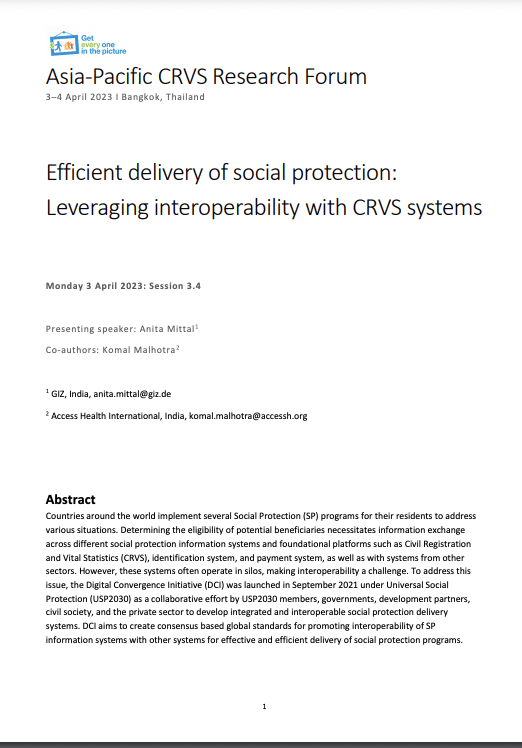Countries around the world implement several Social Protection (SP) programs for their residents to address various situations. Determining the eligibility of potential beneficiaries necessitates information exchange across different social protection information systems and foundational platforms such as Civil Registration and Vital Statistics (CRVS), identification systems, and payment systems, as well as with systems from other sectors. However, these systems often operate in silos, making interoperability a challenge. To address this issue, the Digital Convergence Initiative (DCI) was launched in September 2021 under Universal Social Protection (USP2030) as a collaborative effort by USP2030 members, governments, development partners, civil society, and the private sector to develop integrated and interoperable social protection delivery systems. DCI aims to create consensus-based global standards for promoting the interoperability of SP information systems with other systems for the effective and efficient delivery of social protection programs.
To achieve the objective of interoperability, one of the workstreams of DCI studied the interoperability of SP systems with CRVS, considering that CRVS is a source of truth on various attributes that are important for decision-making on beneficiary eligibility for SP programs. As SP programs serve people at various stages of life, from the womb to the grave, CRVS interoperability facilitates checks on birth, death, and marital life events, as well as family relationships, to determine eligibility for programs such as child grants, widow support programs, and old age allowance. This paper presents the research work on the role of CRVS for social protection delivery and the value proposition of global standards that would make the SP systems and CRVS systems from different vendors interoperable by design.


